
We are taught to look for heroes, for saviours, for external help. That is a big part of the problem. We end up projecting our need for change into a need for others to change, before we can change.
Permanent link to this article: https://truthofself.com/seeking-heroes-and-the-heroic-self/
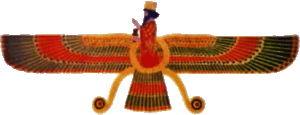
Ahura Mazda (also spelled Ahuramazda), meaning “Wise Lord,” is the supreme god in Zoroastrianism, one of the world’s oldest monotheistic religions, founded by the prophet Zarathustra (or Zoroaster) in ancient Persia (modern-day Iran).
Permanent link to this article: https://truthofself.com/zoroastrianism-ahura-mazda/
-
By Barra in Akkadian Mythology, Assyrian Mythology, Babylonian mythology, Bronze Age, Catholicism, Christianity, Cucuteni-Trypillia culture, Egyptian mythology, Greek Mythology, Judaism, Mesopotamian mythology, Neolithic, Religion, Roman Mythology, Spirituality, Sumerian mythology, Venus Figurine, Zoroastrianism
-
March 27, 2025
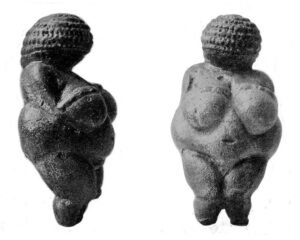
The suppression and defacing of the divine feminine appears to have begun as part of cultural and religious shifts associated with societal transitions from egalitarian or matrilineal societies to more hierarchical and patriarchal ones.
Permanent link to this article: https://truthofself.com/when-did-the-suppression-of-the-divine-feminine-begin/
-
By Barra in Akkadian Mythology, Archetypes, Armageddon, Ascension, Assyrian Mythology, Astec Mythology, Babylonian mythology, Belief Systems, Bronze Age, Buddhism, Catholicism, Celtic Mythology, Christianity, Creation, Duality, Egyptian mythology, Father, Greek Mythology, Hinduism, Iron Age, Mesopotamian mythology, Mother, Mother Goddess, Neolithic, Origins, Paganism, Religion, Spirituality, Sumerian mythology, Yangshao Culture
-
March 26, 2025
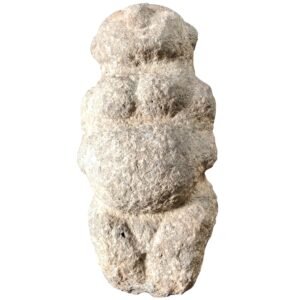
This article discusses the possibility that the observed transition from a feminine dominated understanding of divinity to a masculine dominated one may be a natural part of a cycle of creation.
Permanent link to this article: https://truthofself.com/understanding-of-the-divine-nature-of-the-hiding-of-the-divine-feminine-in-history/
-
By Barra in Akkadian Mythology, Archetypes, Assyrian Mythology, Astec Mythology, Babylonian mythology, Carl Jung, Catholicism, Celtic Mythology, Christianity, Egyptian mythology, Greek Mythology, Hinduism, Indus Valley Culture, Iron Age, Mesopotamian mythology, Mother, Mother Goddess, Native American, Paganism, Religion, Roman Mythology, Shamans, Druids and Pagans, Spirituality, Sumerian mythology, Tel Halaf, Venus Figurine
-
March 26, 2025
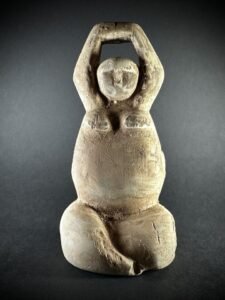
The hypothesis of a historical shift from feminine dominance to masculine dominance in spiritual and religious expression is a widely discussed idea in anthropology, archaeology, and religious studies. While it remains a topic of debate, there is considerable evidence suggesting a gradual transition in spiritual focus and societal structures over millennia.
Permanent link to this article: https://truthofself.com/from-mother-to-father-a-spiritual-gender-dominance-shift/
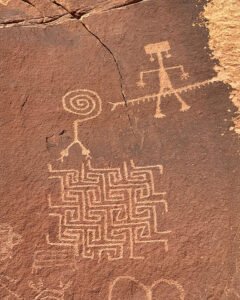
This post introduces an entirely new philosophical viewpoint – the Dissociative Theory of Creation. As well as other notions which compare the human mind to that of the divine. This is the highest level of philosophical thinking, it is emergent. I hope you enjoy these new ways of visualising the divine creative process, and also, the irony built into it
Permanent link to this article: https://truthofself.com/the-maze-rock-petroglyph-and-how-it-visualises-the-creation-of-the-universe/
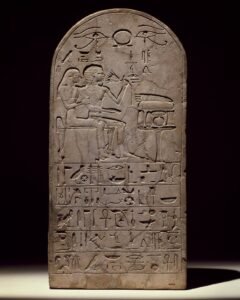
Senres and his wife Hormose are two ancient Egyptian individuals known primarily from inscriptions found in the tomb of Senres at Saqqara. They lived during the Old Kingdom period, likely in the 5th Dynasty, which spanned from about 2494 to 2345 BCE.
Permanent link to this article: https://truthofself.com/senres-and-hormose-of-egyptian-myth/
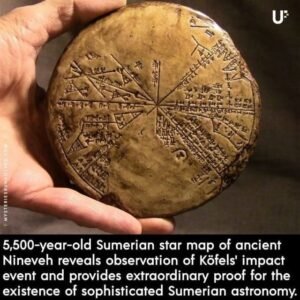
The Nippur tablet, an ancient Sumerian artifact that is believed to hold significant clues regarding early astronomy and the astrological practices of the Sumerians.
Permanent link to this article: https://truthofself.com/the-nippur-tablet/
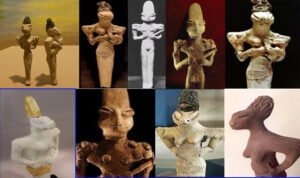
The Ubaid Culture The Ubaid culture is an important prehistoric culture in the ancient Near East, particularly in Mesopotamia, which laid the foundation for later civilizations such as the Sumerians. The Ubaid period (approximately 6500 to 3800 BCE) is known for its distinctive archaeological features, including pottery, settlements, and early forms of social organization. It …
Continue reading
Permanent link to this article: https://truthofself.com/the-ubaid-culture/
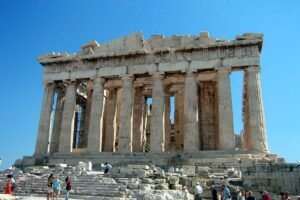
The background to Socrates’ death sentence in 399 BC is both fascinating and complex, reflecting the political and social climate of ancient Athens.
Permanent link to this article: https://truthofself.com/the-death-of-socrates-history-showing-that-we-are-not-learning/
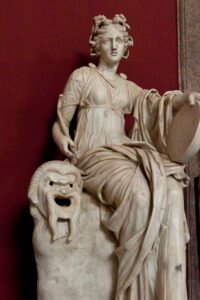
The Ancient Greeks believed that ideas, especially those that were ground-breaking or profound, could be of divine inspiration, and could be accessed via the Muses.
Permanent link to this article: https://truthofself.com/the-muses-who-is-keeping-you-enthused/
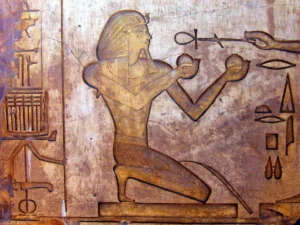
The finding of the lost tomb of Thutmose II is a significant event in the field of archaeology. Here are some key points about this remarkable find and relation to wider Egyptian culture of the period.
Permanent link to this article: https://truthofself.com/the-lost-tomb-of-thutmose-ii/

The Jōmon culture of Japan and the Mother Goddess The Jōmon culture is one of the oldest and most significant prehistoric cultures in Japan, known for its distinctive pottery, early agricultural practices, and complex social structures. The term “Jōmon” refers to the cord-marked pottery that the culture produced, which became a hallmark of their society. …
Continue reading
Permanent link to this article: https://truthofself.com/the-jomon-culture-of-japan-and-the-mother-goddess/
-
By Barra in Anatolian, Archetypes, Bronze Age, Indus Valley Culture, Iron Age, Joman Culture, Mesopotamian mythology, Mother, Mother Goddess, Spirituality, Tel Halaf, Vinca Culture
-
February 3, 2025
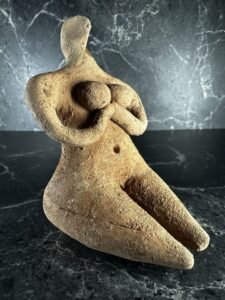
The Tel Halaf culture refers to an archaeological culture from the Late Chalcolithic to Early Bronze Age (approximately circa 6000–3500 BCE) that was centred in what is now north-eastern Syria, in the region of the Khabur River.
Permanent link to this article: https://truthofself.com/the-tel-halaf-culture/

A Global Mother Goddess Cult? As I have continued to study the “Venus” Mother Goddess phenomenon, I have begun to build a picture for the development of belief, from the Palaeolithic to the present. The picture that is emerging, could be described as follows, albeit, with the minimal knowledge I have gathered so far: “In …
Continue reading
Permanent link to this article: https://truthofself.com/1310042-2/
-
By Barra in Belief Systems, Brainwashing, Buddhism, Christianity, Freedom, Individuality, Institutional Brainwashing, psychology, Religion, Selfists, Spirituality, Sumerian mythology, Unconditional love
-
January 20, 2025

Here’s my personal Quote for the day: “Brainwashed people are terrified of being brainwashed, and might “kill” you, to prevent you from speaking, to avoid that intense, internalised and denied fear. People who are not brainwashed, have no fear of the ideas of others. They broke their brainwashing and have their truth. It takes an …
Continue reading
Permanent link to this article: https://truthofself.com/only-the-brainwashed-fear-brainwashing/

What is the source of Sin? What is Sin, even? Well, it’s lies. It’s the lies we tell about ourselves, both to ourselves and others, which we then need to compound with other lies, to support those previous, until eventually, “drama” happens.
Permanent link to this article: https://truthofself.com/what-is-the-source-of-sin-how-do-the-demons-get-in/

Yoga has a rich and ancient history that intertwines with Indian spiritual and philosophical traditions. Its origins are often traced back over 5,000 years, with roots in the Indus Valley Civilization (around 3,000 BCE).
Permanent link to this article: https://truthofself.com/the-mythical-origins-of-yoga/
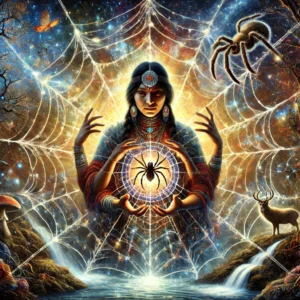
The concept of the Spider Queen, and the women who align with her archetype, reveals deeper insights into both mythological symbolism and the marginalization of feminine power in society.
Permanent link to this article: https://truthofself.com/the-spider-queen/

In the context of ascension and memory loss, one could argue that those who experience memory loss or cognitive decline might be undergoing a deeper, spiritual process of shedding their earthly attachments, just as some spiritual traditions describe the process of personal ascension.
Permanent link to this article: https://truthofself.com/memory-loss-ascension-and-dementia/




















